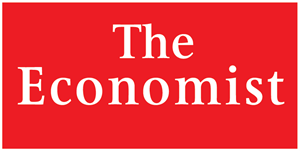
United Kingdom of Great Britain
Jan 30th 2021
Sex, lies and videotape. Morocco’s regime is accused of blackmailing critics
A government scorned resorts to revenge porn
When a foreign journalist needs a pithy quote, or diplomats want to talk about human-rights abuses in Morocco, Fouad Abdelmoumni usually obliges. His expertise is microcredit, but he is also an articulate critic of the makhzen, the country’s royal court. So recently the men of King Muhammad vi (pictured) tried to shame Mr Abdelmoumni into silence. They gained access to recordings of him having sex with his partner. Then they pinged clips to his relatives’ phones.
Mr Abdelmoumni says dozens of the king’s critics—from liberals to Islamists—have faced similar smear campaigns. Since 2019 the regime has tried and jailed three prominent journalists for sexual offences, including rape. Media in thrall to the makhzen hail these as victories for the country’s #MeToo movement. Independent journalists say they are being cowed by the king and his kangaroo courts. Several women who testified against the journalists said their statements were falsified. At least one of them was jailed, too.
Until the Arab spring uprisings in 2011, Morocco’s press was among the region’s freest. Independent magazines and websites, such as TelQuel and Lakome, ran features on the king’s personal finances and his alleged ties to drug smugglers. But since then, and although the Arab spring protests in Morocco were relatively tame, the press has come under increasing heat. The makhzen has leant on advertisers, causing the revenues of critical outlets to collapse. Editors have been thrown into jail or chased abroad. Some relief seemed to come in 2016, when prison sentences for journalistic violations were abolished. Now, though, the government threatens cheeky reporters with criminal offences unrelated to their work.
Observers liken the repression to that of Hassan ii, the current king’s ruthless father. Others draw comparisons to Zine el-Abidine Ben Ali, the former dictator of Tunisia who used sexual revelations to besmirch his critics. The makhzen’s hypocrisy adds another layer of outrage. When a female police officer in El Jadida filed harassment charges against her boss in 2016, her salary was frozen. The boss’s brother-in-law, Abdellatif Hammouchi, is the kingdom’s security chief. That same year King Muhammad caused an outcry when he paid the legal fees of a Moroccan pop star being tried for rape in France.
It is not just that naysayers are being muzzled. The regime and its loyalists have also flooded the market with dozens of online outlets and launched an army of trolls to retweet positive headlines. Barlamane, an online paper, is run by a former interior-ministry official. Another popular outlet is thought to be owned by a confidant of the king. “They killed the independent press,” says Aboubakr Jamai, the founder of Lakome, who fled to France years ago after another outlet he founded, Le Journal Hebdomadaire, was shut down by the authorities.
In 2011 the king promised to chart a “democratic course” for Morocco, but he still rules unaccountably. Royal pronouncements, such as his recent decision to establish relations with Israel, go unquestioned. His underlings take the blame for any problems. In December, for example, the king announced a programme to supply vaccines for covid-19 free to all Moroccans, leading to gushing headlines in the regime-friendly press. Six weeks on, the programme is just getting started. The delay, say ministers, was due to bottlenecks in the supply.
“I used to assume that the wide margin of manoeuvre we had was due to the democratic inclinations of the king,” says another editor who fled abroad. “It’s just that it took him time to consolidate as an absolute monarch.” The pandemic hasn’t helped. The government has stopped holding press conferences, ostensibly to maintain social distancing. People are fed up with a lack of jobs and shrinking economy, but they are reluctant to protest because of the virus.
Still, some refuse to lie low. Last month, after the police arrested his friend, Mr Abdelmoumni broke his silence and revealed the government’s attempt to blackmail him. “I expect I’m now on the list for detention,” he says. “Or worse.”
The Economist


Commentaire